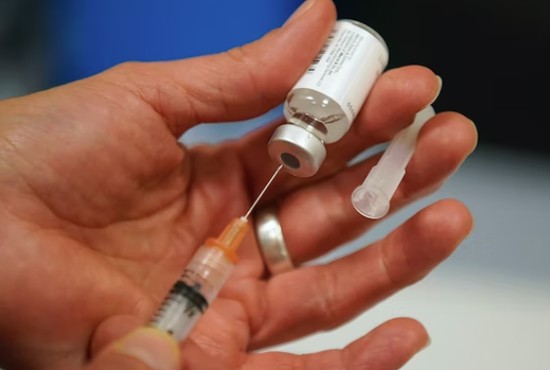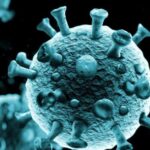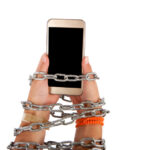When I was a child, before going to school in the mid-1950s I received a number of shots to cover highly communicable diseases like measles, mumps, rubella, whooping cough, smallpox and more. Proof of vaccination was your entry card into public school. And as I grew up the polio vaccine was added along with a few others that were administered through school programs. Our parents believed what doctors and scientists were telling them. The evidence was stark. These vaccination drives saved lives. When children were vaccinated, they were protected from other children who were not or children who were infected. As a result parents and siblings were protected as well. Apart from common colds and seasonal viruses, always part of being in school at the beginning of the fall and through the winter, modern medical vaccine interventions worked.
But today, that’s not what’s happening. Just look at COVID-19 children vaccine uptake in Canada, a country that has seen much of its adult population get two, three, four and even five vaccines since they were introduced to combat the virus. Canada’s record on getting its population to get vaccinated is better than most countries. National figures show:
- 83% have had at least one COVID-19 vaccine jab.
- 80.3% have had two.
- 49.6% have had three.
- 14.3% have had four.
- For ages 1 to 4, approximately 1% have completed the two-vaccine initial regimen.
- For ages 5 to 11, a little over 41% have had two vaccines.
The COVID-19 vaccination rates among children directly reflect parental decision-making. Parents are showing hesitation when it comes to getting their children vaccinated even though a significant majority have accepted getting the vaccines for themselves.
There are many good reasons to ensure you as an adult are vaccinated, and your children are as well. These seven are cited by UNICEF and include:
1. Infected children can get serious symptoms.
Children who do not get immunized against preventable diseases can experience serious complications. For example, not getting immunized for measles can lead to diarrhea, pneumonia, or blindness.
2. infected children infect others.
A sick child puts other children and adults in the community, parents, siblings, and grandparents at risk. Adults with whooping cough can infect unvaccinated children who can die from this preventable disease. A pregnant woman infected by rubella from being exposed to it by an unvaccinated carrier can pass the disease on to their unborn child leading to congenital rubella syndrome. A Pregnant woman exposed to an unvaccinated child who catches measles can miscarry.
3. Infected children can infect a community.
Recently there has been a renewed outbreak of polio in New York. Why? Because children are not being vaccinated to prevent the disease and so it is once more emerging.
4. Getting sick imposes a financial burden.
We pay a high price tag for not getting immunized. Whether we are talking about hospitalizations going up, work-days lost, or death rates rising, ignoring immunizations penalizes all of society. Just take a look at the burden diphtheria puts on us. This disease is treated in hospital in isolation. It requires around-the-clock monitoring and special medications. Measles can last up to 15 days, and seriously impair the sufferer for a good percentage of the gestation period of the illness. Hepatitis causes adults who get it to lose a month of work. And babies who contract congenital rubella require lifelong treatment.
5. Getting sick decreases quality of life
Consider what COVID-19 has done to you and the people you know. My wife and I have felt imprisoned in our apartment for much of the last two-and-a-half years. The majority of our outings have been for medical appointments, getting vaccinated, and dealing with the complications of getting COVID-19 before vaccines were available. We haven’t gone to a movie or a play. We only recently went to a few restaurants to dine with friends who were fully vaccinated. Even then our reservations were made in off-peak hours or for outside seating during the summer. We haven’t travelled.
The COVID-19 infection I got a month after global alarms went off has burdened me with two heart procedures, and a vascular surgical procedure, and I have been left with persistent Long COVID symptoms. Having said that I feel lucky compared to what measles can do to an unvaccinated child leaving them blind, or what polio can do leaving them paralyzed.
6. Decreased life expectancy.
Vaccines more than doubled the lifespan of humans in the 20th century. Not getting vaccinated is contributing to lowering life expectancy. According to the Centers for Disease Control, life expectancy in the U.S. since COVID-19 emerged has dropped from 77 to 76.1 years, the lowest level since 1996, and the biggest two-year decline since the period from 1921 to 1923 when the Spanish Flu was rampant.
Compare that to life expectancy increases in places where immunization programs for children have increased lifespans dramatically. Brazil, for example, where vaccination of children became a health priority, saw life expectancy increase by thirty years between 1940 and 1998.
7. Immunization is needed for travel and school enrollment.
If you have ever travelled to tropical countries, a visit to your family doctor beforehand should be a prerequisite. Getting immunized for tropical diseases can save your life. A number of countries won’t let you in without proof of immunization.
The same is true for children who are not immunized when they want to go to school. An incomplete immunization status usually without medical exemptions means your child will not be admitted to the classroom.
An Eighth Reason Not on UNICEF’s List
This one is particular to COVID-19 where keeping up with the latest boosters can keep you sufficiently protected to survive reinfection. That’s right. The vaccines don’t create lifetime immunity. They boost your immune system so that should you be infected by a new viral strain, you will likely avoid hospitalization.
People are getting COVID-19 more than once over the three years since the pandemic started. Even with natural antibodies produced after being infected, and even with the additional antibodies produced by COVID-19 booster shots, there are health consequences.
Besides Long COVID which now is a persistent challenge for many, the virus through repeat infections is causing disorders that affect the heart, lungs, brain, circulatory, musculoskeletal and gastrointestinal systems. The more often you get exposed and reinfected the greater the risk. So here are actions you can take to minimize your reinfection risk.
- Masking when indoors or in crowded outdoor venues is a preventive measure easily done.
- If travelling by air or train, masking minimizes getting infected or reinfected.
- Using sanitary wipes on the seat, headrest, tray table and arms of your seat when travelling reduces your risk.
- Washing your hands or using a hand sanitizer is a good practice to follow.
- And finally, getting children immunized so that they don’t get COVID-19 which is bad enough, and so that they don’t become a source to infect or reinfect you.
Conspiracy Theories and Antivaxxers
The medium is the message these days. The source from which you derive your worldview, your perspective on issues such as to be or not to be vaccinated, has challenged many today. You need to distinguish between trusted sources and those that pedal misinformation. There should be courses on this in K-12 schools and universities. Because whether you come across a celebrity online or in print telling you that vaccines cause autism or Tourettes. Or you read a summation of a discredited medical paper on measle vaccines that continues to circulate endlessly on the Worldwide Web because nothing ever disappears from the Internet, all of us need to be able to discern truth from lies, and quality information from disinformation.
Vaccines for COVID-19 and all many others mentioned in this posting save lives. Some of us may react to a vaccine negatively. This does happen. But the vast majority of us are saved by the immunization we receive from getting jabbed. I understand some of us are averse to getting a needle in the arm. If it hurts then tell the person who administers your next jab to choose a place higher on the arm where you have more muscle. I guarantee you will note the difference. No ouchies.
















